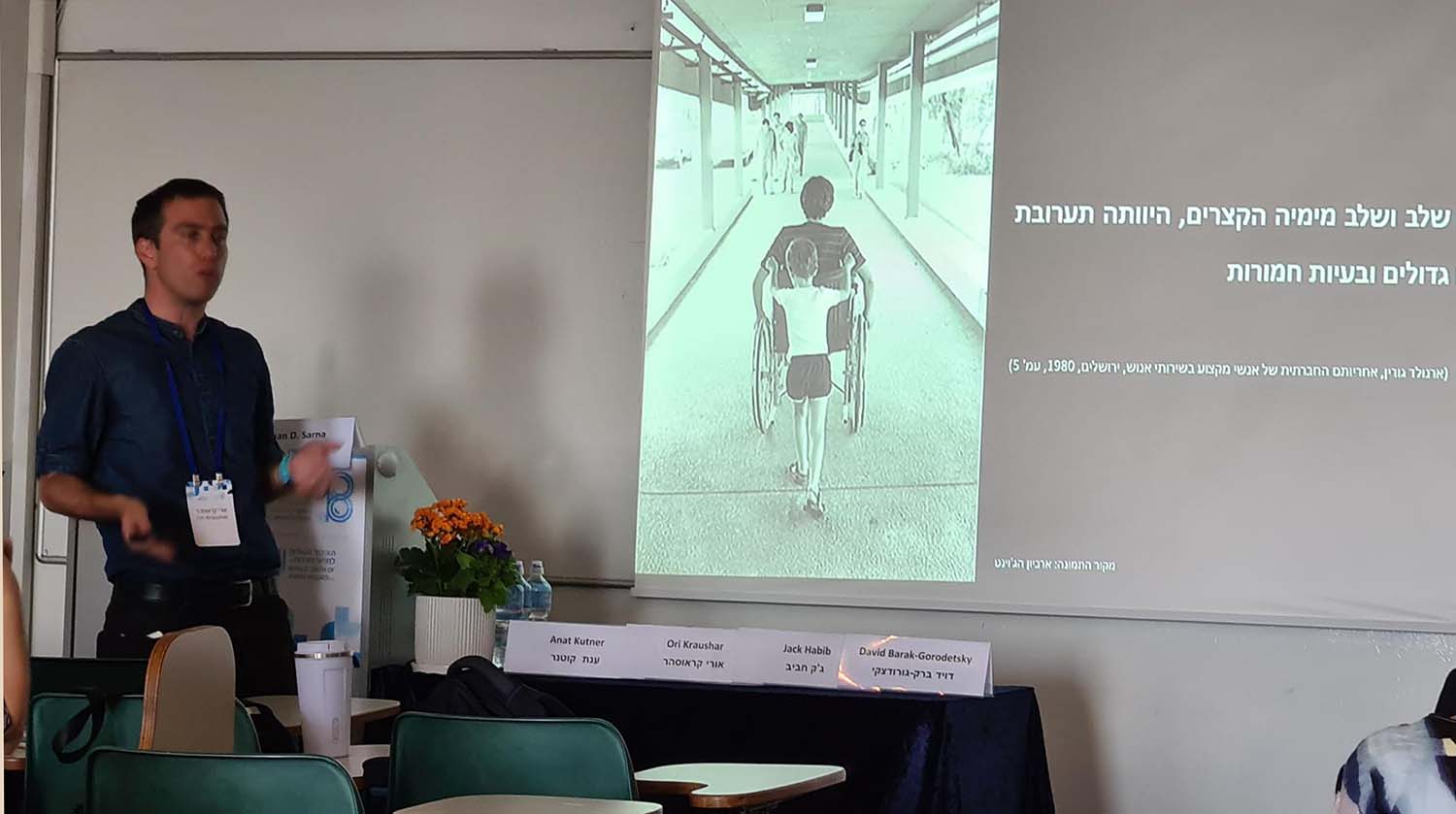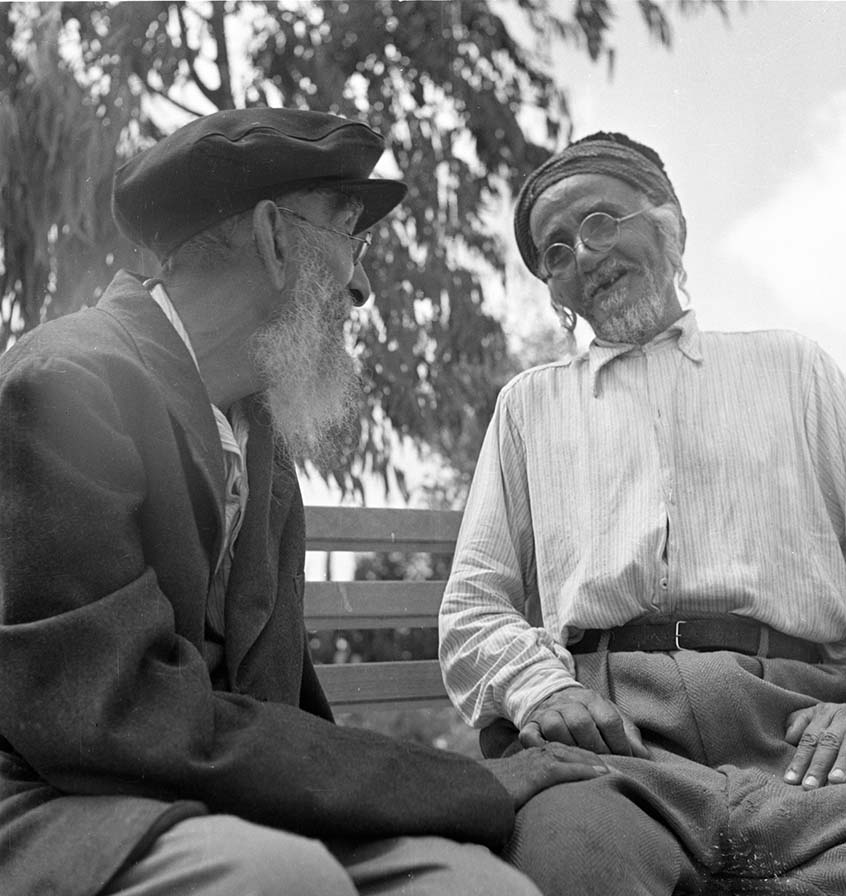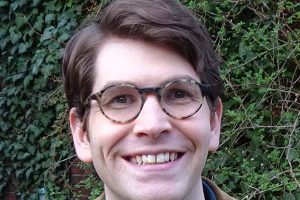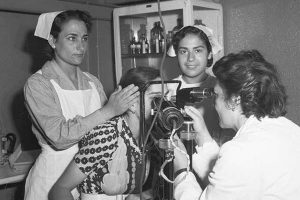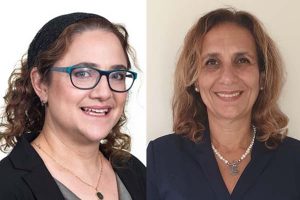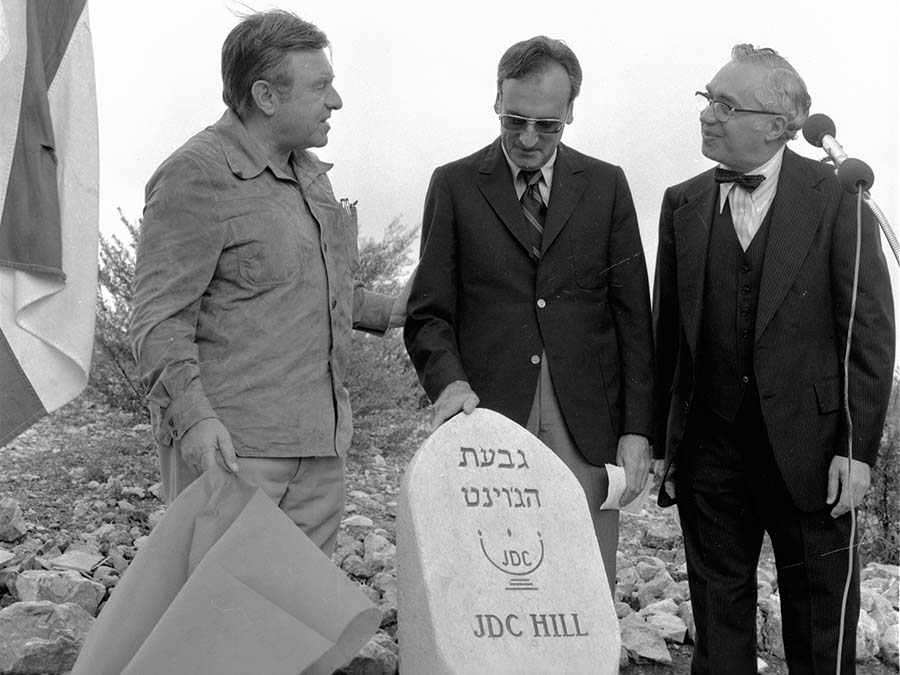
Jewish History Seen through the JDC Prism
JDC Archives staff present at the World Congress of Jewish Studies
JDC history was presented by JDC Archives team members in two sessions at the 18th World Congress of Jewish Studies in August 2022. This prestigious Congress takes place every four years in Jerusalem bringing together scholars and graduate students from around the world. Session topics include all areas of academic Jewish studies: Bible, history, literature, art history, sociology, musicology and more. Three JDC Archives staff presented at the congress.
New York senior archivist Misha Mitsel lectured on “Accusations against JDC as Part of the ‘Anti-Zionist’ Propaganda Campaign in the USSR and Countries of the ‘People’s Democracies’” (1950s–1980s). Mitsel spoke in a well-attended session that dealt with Jewish humanitarian aid organizations. Tracing this history from Stalin’s 1952-1953 show trials in which JDC was accused of espionage (see for example this translation of a 1953 article from Ce Soir, a French communist newspaper), through the 1960s-1980s accusations of Zionism, Mitsel showed the ramifications of these developments on JDC’s work.
The JDC Jerusalem Archives organized a panel on “Philanthropy in a Sovereign State: JDC’s Activity in Israel, as a Case Study of American Jewish Philanthropy in the Jewish State.” Session chair Dr. Jonathan Sarna, professor of American Jewish History and Director of the Schusterman Center for Israel Studies at Brandeis University, introduced the forum, saying that “a session dealing with the Joint is a welcome and important thing, because not enough is known about its contribution to the State of Israel.” Sarna also serves as a JDC board member.
In the first presentation, Ori Kraushar, Jerusalem Archives reference historian, gave an overview of the nature of the Joint’s activities from the founding of the state to the mid-1980s, against the background of the state’s needs. His lecture illustrated the centrality of American Jews to the development of welfare systems in Israel. Dr. Anat Kutner, JDC Jerusalem Archives director, highlighted JDC’s agility in adapting to the changing needs in Israel: first the establishment of the Malben organization, followed by the establishment of Eshel, up to today’s JDC-Israel. The lecture demonstrated, through the change in care for the elderly population, the transition to partnership with the government as a response to changing needs.
Professor Jack Habib, former CEO of the Myers-JDC-Brookdale Institute, shared with the audience the evolution of and his experience since the founding of the research institute. Habib emphasized the significant contribution of the institute’s research to social planning in Israel.
Dr. David Barak-Gorodetsky, director of the Ruderman Program for American Jewish Studies at the University of Haifa, gave a contemporary sociological overview of the relationship between American Jews and the State of Israel, as reflected in philanthropic activity. According to him, philanthropy enables the creation of mutual negotiations between Israeli society and American Jews, contributing to an evolving relationship.
At the end of the session, Professor Sarna led a fascinating discussion, including participation by prominent researchers present in the audience.
JDC Archives staff who were present at the Congress were gratified to hear enthusiastic responses about the user experience of researchers who have used the JDC Archives and an interest in further collaboration. The Congress proved once again the importance of JDC for the study of Jewish history in the last hundred years and the JDC Archives’ role as a central resource (see here for just one of many relevant text collections and here for JDC archival photos of the Yishuv and Israel).
